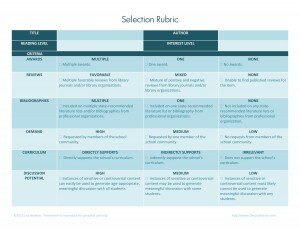
1. An un-weeded collection.
Weeding is an essential part of collection development. It is not something you should do eventually; it is something you should do regularly. We all know why we need to weed- so why don’t some librarians do it? Yes, it’s tedious and it can be dirty. But it’s part of what we signed up for and neglecting to weed is a form of incompetence. I’m not saying you have to weed your entire collection every year. But at least weed something. Your students (and the people who inherit your library when you retire) will thank you.
2. Fiction sections that should be labeled “Old Lady Fiction” (or “Christian Mom Fiction”)
Christian schools’ fiction sections should include Christian fiction- for sure. But let’s make sure our fiction sections have appropriate secular fiction and updated (keyword: updated) Christian fiction. I cringe when I see Christian school libraries whose fiction sections are filled with Christian romance novels and Christian chick-lit from the 1990s. Please make sure you choose titles that are appealing to both boys and girls, and that they’re recent titles.
3. Tech-terrified library staff
We all have varying levels of technology expertise and experience. We may not be that confident about learning new technologies. But there’s a difference between being a little hesitant and being tech-terrified. You don’t have to be a tech genius, but we need to be open to improving our existing skills and experimenting with new technologies. Don’t be too proud to learn from your students. Many students will blossom when given the opportunity to teach something to an adult.
4. Librarians who don’t like kids.
Why are some school libraries staffed by people who appear to dislike children and teenagers? If you don’t like kids, or if you can’t deal with some noise, then why did you take the job?
5. Dirty, dusty libraries.
I’ll admit I’m not the neatest person in the world. I struggle with keeping my home and workplace clean, just like everyone else. But there comes a point when the level of uncleanliness I’ve seen in some libraries can be dangerous to your health and your students’ health. If you’ve never dusted your desk or your shelves, you need to start. Set up a reminder in your calendar, and do it on a regular basis. You don’t need to dust the entire collection every week. But perhaps you can dust one row of books each week. A cleaner, less-dusty library makes for a more attractive and healthier space for everyone.
What are you library pet peeves? Please share in the comments section below!




